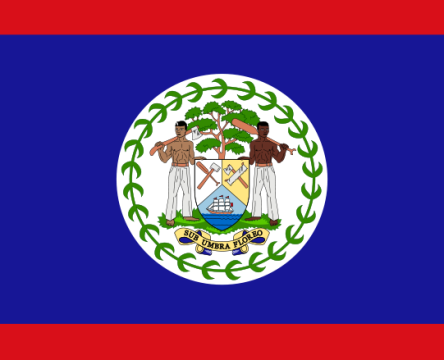On 30 December 2019, the Court of Appeal of Belize upheld the earlier decision of the Supreme Court which ruled Section 53 of Belize’s Criminal Code criminalising same-sex activity, as unconstitutional.
Section 53 of the Belize Criminal Code, brought into force under British colonial rule, states that ‘Every person who has carnal knowledge against the order of nature with any person or animal shall be liable to imprisonment for ten years.’ In September 2010, activist Caleb Orozco and LGBT association UNIBAM filed a claim against the Attorney General of Belize challenging the constitutionality of Section 53. A year after the Orozco’s case was filed, the Human Dignity Trust, together with the Commonwealth Lawyers Association and the International Commission of Jurists, joined the litigation as Interested Parties, with the aim of supporting Orozco. The Roman Catholic Church of Belize, the Belize Church of England and the Belize Evangelical Association of Churches also joined the Orozco case as Interested Parties in order to oppose the claim.
In May 2013, the Chief Justice heard the case. In 2016 the Chief Justice determined that Section 53 violated the right to human dignity (Article 3(c)), privacy (Articles 3(c) and 14(1)), freedom of expression non-discrimination (Article 12) and equality before the law (Article 6(1) and 16). The Court ‘read down’ Section 53 to exclude consensual sexual acts between adults in private from its criminalising scope. The Chief Justice also ruled that the definition of “sex” in Section 16(3) of the Constitution includes ‘sexual orientation’, in line with Belize’s international obligations.
The Attorney General appealed the Supreme Court’s judgment, albeit limited to two particular grounds, namely freedom of expression and non-discrimination on the grounds of “sex” under sections 12 and 16 of the Constitution respectively. The appeal was heard on 29 October 2018, with the three-judge bench ruling on 30 December 2019. It upheld the reasoning of Chief Justice Benjamin in the Supreme Court that non-discrimination on the grounds of “sex” under Sections 3 and 16 of the Constitution encompasses sexual orientation with Justice Samuel stating:
“Including sexual orientation gives the word sex in ss. 3 and 16 of the Constitution a purposive and generous meaning for protecting human rights. Accordingly, we hold that s. 53 of the Criminal Code is a law which discriminates on the basis of sex, which includes sexual orientation and is discriminatory against the respondent Orozco, a homosexual. The section is inconsistent with ss. 3 and 16 of the Constitution, and is void to that extent.”
The Court of Appeal further rejected the other ground of appeal, namely that the Chief Justice had “failed to reason and rationalize” his decision that Section 53 violated freedom of expression, and further determined that even if there had been a lack of reasoning, the Court of Appeal would have reasoned on the evidence provided that “homosexual sexual intercourse and heterosexual sexual intercourse are forms of expression.”
Download the judgment



